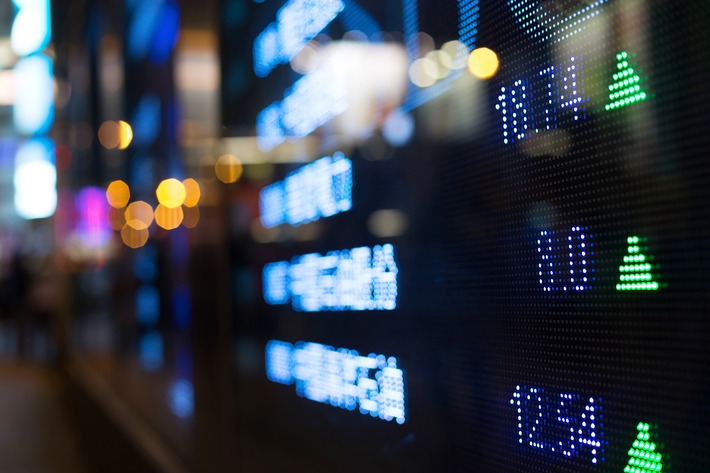Asia’s major stock indexes went backwards on Wednesday with investors unnerved by the continuing US debt ceiling stand-off and the possible repercussions if a deal is not struck in time.
Representatives of President Joe Biden and congressional Republicans ended another round of debt ceiling talks on Tuesday with no signs of progress and that sent jitters around the region’s trading floors.
Japan’s Nikkei share index dropped for a second straight session as the bargain buyers swooped on a day of low-risk appetite.
Also on AF: China Warns Japan to Reverse its Ban on Chipmaking Gear
The Nikkei fell 0.89% to close at 30,682.68. In the previous session, the index retreated from a peak of 31,352.53, a level last seen in August 1990. The broad Topix fell 0.42% to 2,152.40 on Wednesday.
But sentiment at Japanese manufacturing giants has turned positive for the first time this year, while analysts said the Nikkei will end the year around the psychologically key 30,000 level, according to Reuters polls.
Chinese stocks fell too as geopolitical risks continue to weigh on investor sentiment.
Russia and China are set to sign a set of bilateral agreements on Wednesday during the Russian prime minister’s trip to Beijing as the two neighbours pledge closer cooperation, even as the West remains critical of their ties amid the war in Ukraine.
The Shanghai Composite Index slipped 1.28%, or 41.49 points, to 3,204.75, while the Shenzhen Composite Index on China’s second exchange retreated 0.46%, or 9.24 points, to 2,009.48.
Hong Kong shares also declined, tracking other Asian stocks extending a global sell-off as those US debt ceiling negotiations dragged on without resolution.
Tech giants trading in Hong Kong slipped 1.1%, with Alibaba Group Holding Ltd down 1.6%. The e-commerce giant’s cloud unit has started a round of downsizing that will impact 7% of staff as it streamlines its business in preparation for an IPO.
Hong Kong’s benchmark Hang Seng Index was down 1.62%, or 315.32 points, at 19,115.93, while the China Enterprises Index fell 1.90%.
Elsewhere across the region, in earlier trade, there was also selling in Seoul, Sydney, Taipei, Singapore, Manila, Mumbai, Wellington and Jakarta. MSCI’s broadest index of Asia-Pacific shares fell 0.4%.
US Dollar Index Eases
US equity futures, though, pointed to gains of 0.15% at the reopen for the S&P 500 and Nasdaq, after sharp declines overnight.
Treasury Secretary Janet Yellen has warned that the federal government could no longer have enough money to pay all its bills as soon as June 1, if there’s no agreement on the US debt ceiling, raising the risk of a damaging default.
While the risk of a default that could precipitate a recession is bad for the United States, investors worried about the repercussions for the global economy have turned away from riskier assets.
Reports that the US Treasury has asked federal agencies whether they can delay upcoming payments added to the sense of crisis.
The US dollar index, which measures the currency against six major peers, eased 0.1% to 103.43, but remained close to a two-month high of 103.63 reached last week.
Long-term Treasury yields ticked down to 3.68% in Tokyo, extending a retreat from a more than two-month high of 3.696% reached in New York.
In commodities, gold edged 0.1% higher to around $1,977 as traders eyed debt ceiling talks.
Crude oil price extended gains from Tuesday, when Saudi Energy Minister Prince Abdulaziz bin Salman warned speculators to “watch out,” saying “they will be ouching.”
Brent crude futures rose 68 cents to $77.52 a barrel, while U.S. West Texas Intermediate crude gained 75 cents to $73.66 a barrel.
Key figures
Tokyo – Nikkei 225 < DOWN 0.89% at 30,682.68 (close)
Hong Kong – Hang Seng Index < DOWN 1.62% at 19,115.93 (close)
Shanghai – Composite < DOWN 1.28% at 3,204.75 (close)
London – FTSE 100 < DOWN 1.55% at 7,642.81 (0934 GMT)
New York – Dow < DOWN 0.69% at 33,055.51 (Tuesday close)
- Reuters with additional editing by Sean O’Meara
Read more:
Risk Warnings as China Money Floods Into Japan-Focused Funds
Global Watchdog Unveils Regulatory System For Crypto Sector
S&P Cuts SoftBank Rating Deeper Into Junk Over Alibaba Sale
























